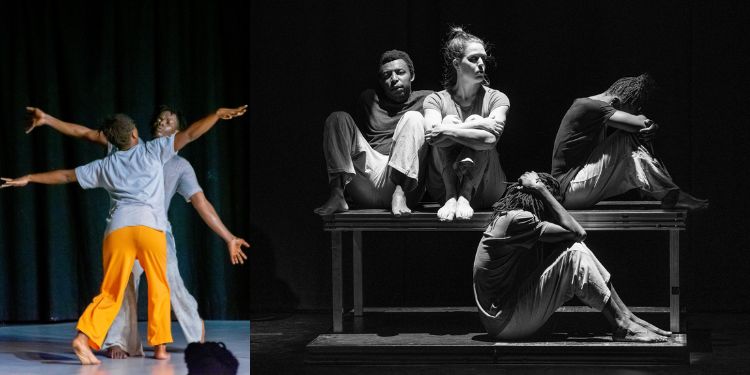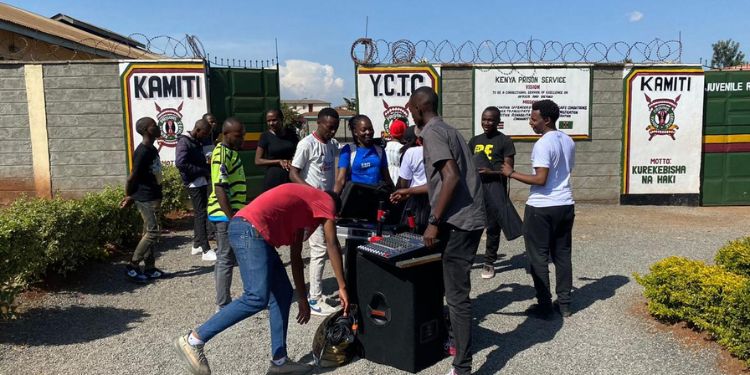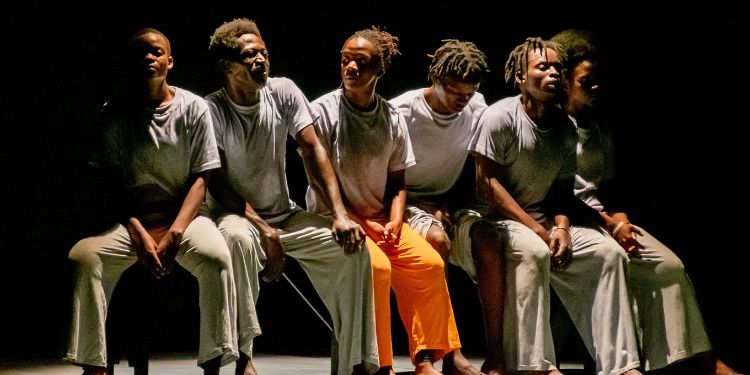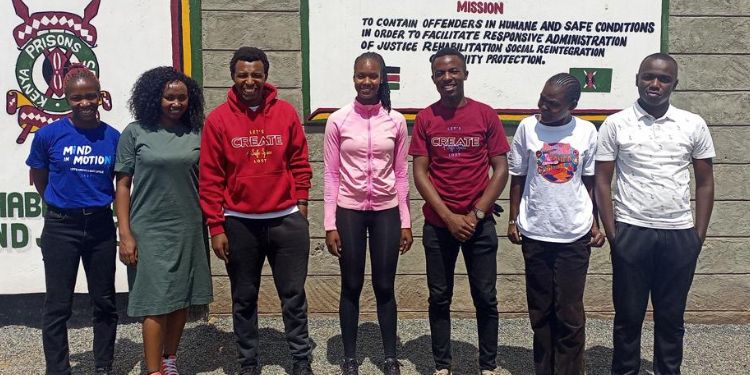Inmates at Kamiti Maximum Prison are dancing. Not for leisure, however for emotional survival.
Although psychological well being in Kenya remains to be closely stigmatized, a grassroots Kenyan initiative referred to as Lost State of Mind is popping motion into medication, serving to younger folks course of ache, construct resilience, and reclaim their tales via artwork.
The group was based in January 2022 by dancers Suleiman Maningi and Vincent Owoko, who’ve each been within the performing arts area for over a decade.
When the chance got here to collaborate, they realized they might construct one thing extra intentional.
“Our personal private experiences with psychological well being, our struggles, the folks we’ve misplaced, and the folks we’ve seen hurting in silence, made us need to create an area that brings hope,” mentioned Maningi in an interview with The Kenya Times’ Correspondent Joy Kwama.
Their first dance piece, additionally titled Lost State of Mind, premiered in May 2022 and was ‘met with an awesome response’ in accordance with Maningi.
“Audience members engaged deeply with the efficiency and opened up about their psychological well being challenges.”
The two co-founders have been inspired by the influence and registered Lost State of Mind as an official group, dedicated to utilizing dance, motion, and storytelling to boost psychological well being consciousness.

Table of Contents
Why the Name Lost State of Mind
Explaining the that means behind the title Lost State of Mind, Maningi mentioned it speaks to the psychological and emotional disorientation folks usually face.
“We undergo struggles, confusion, heartbreak, and stress. Most of the time, we’re simply transferring via completely different emotional states,” he mentioned.
Also, he defined that the title just isn’t solely about unhappiness or ache, however about “the quiet battles we battle inside our heads.”
“We all, in some unspecified time in the future, get misplaced. But if we will discuss it, transfer via it, and specific it, particularly via one thing like dance, we will start to search out our means once more,” he famous.
The basis of Lost State of Mind’s therapeutic strategy is predicated on 4 key feelings, together with anger, worry, happiness, and unhappiness.
Maningi defined the idea utilizing the analogy of an “emotional cup.”
“When we let these feelings construct up with out expressing them, they ultimately spill over. That’s after they start to regulate us,” he mentioned.
Therefore, to assist individuals handle these feelings, every is explored via guided motion. For occasion, in periods specializing in anger, individuals are inspired to recollect one thing that made them deeply offended after which specific it bodily via dance.
“That bodily launch helps empty the cup a bit and places them again in management,” he added.
The identical precept is used to discover worry, unhappiness, and even happiness.

Programs Built Around Expression and Healing
Lost State of Mind operates three foremost packages, together with Mind in Motion, Bars to Belonging, and Empower Through Movement.
Mind in Motion makes use of dance to open up dialogue round psychological well being. The program options performances, workshops, and partnerships with faculties and healthcare suppliers to succeed in youth and marginalized teams.
“We convey collectively artistic arts and psychological well being advocacy to create protected, inclusive areas,” mentioned Maningi.
On the opposite hand, Bars to Belonging, was carried out at Kamiti Maximum Prison, focusing on juvenile detainees. Many of the individuals have skilled trauma, isolation, and an absence of emotional assist.
Through dance, DJing, embroidery, beadwork, music manufacturing, and psychological well being schooling, the younger individuals are guided to rediscover their self-worth, construct emotional resilience, and put together for reintegration after incarceration.
Additionally, the third program, Empower Through Movement, blends dance and therapeutic methods for a wider viewers. Sessions give attention to emotional launch, connection, and private progress.
“It’s open to anybody looking for therapeutic, from college students to adults,” mentioned Maningi.
Fighting Stigma and Cultural Silence
One of the challenges the group addresses is the cultural stigma round psychological well being in Kenya, particularly among the many youth.
According to Maningi, Lost State of Mind provides a response to that silence.
“Culturally, we’re not all the time inspired to talk overtly about what we’re going via. Young individuals are usually informed to “be sturdy” or to “hold quiet,” which pressures them to bottle up feelings.”
“We’re creating protected, artistic areas the place youth can specific themselves freely with out judgment. Whether via motion, dialog, or artwork, the purpose is to supply validation and connection,” mentioned Maningi.
To construct belief in communities unfamiliar with psychological well being discussions, Lost State of Mind begins with partaking, low-pressure actions like video games or dance periods.
Once the area feels protected, the group step by step introduces psychological well being schooling utilizing relatable language and real-life examples.
Maningi believes that perceptions round psychological well being in Kenya are slowly altering, particularly among the many youth., with extra younger folks beginning to discuss their struggles, search assist, and open up.
However, he famous that actual progress requires authorities assist and stronger insurance policies. One fable he hopes to dispel is the idea that psychological sickness is linked to witchcraft.
“We hope to see stronger insurance policies and extra funding in psychological well being throughout Kenya. Awareness should flip into motion and accessible care. People don’t want deliverance, they want understanding, assist, and entry to correct care,” he said.

How do you measure influence?
Because therapeutic is deeply private, Lost State of Mind tracks emotional shifts utilizing non-intrusive strategies.
A standard software is the sticky notice train, the place individuals write down how they really feel initially, center, and finish of a session.
The group additionally makes use of digital varieties after workshops to gather suggestions on how individuals felt and what they realized.
“It’s not about checking packing containers, it’s about giving folks a voice in their very own therapeutic,” he added.
Also, partnerships with therapists, educators, and artists are crucial to the group.
“Therapists assist us form the psychological well being curriculum, educators join us with college students, and artists assist ship the message creatively,” mentioned Maningi.
In the subsequent 5 years, Maningi’s imaginative and prescient for the initiative is increasing past Nairobi and into different components of Kenya and East Africa.
“We need to attain communities which have by no means had entry to psychological well being assist via artwork and motion,” he mentioned.
He hopes Lost State of Mind will affect nationwide coverage by proving that artistic expression is a sound software for emotional and psychological assist.
“Real change will come when psychological wellness is prioritized not simply in hospitals, however in faculties, communities, and even authorities planning.”













